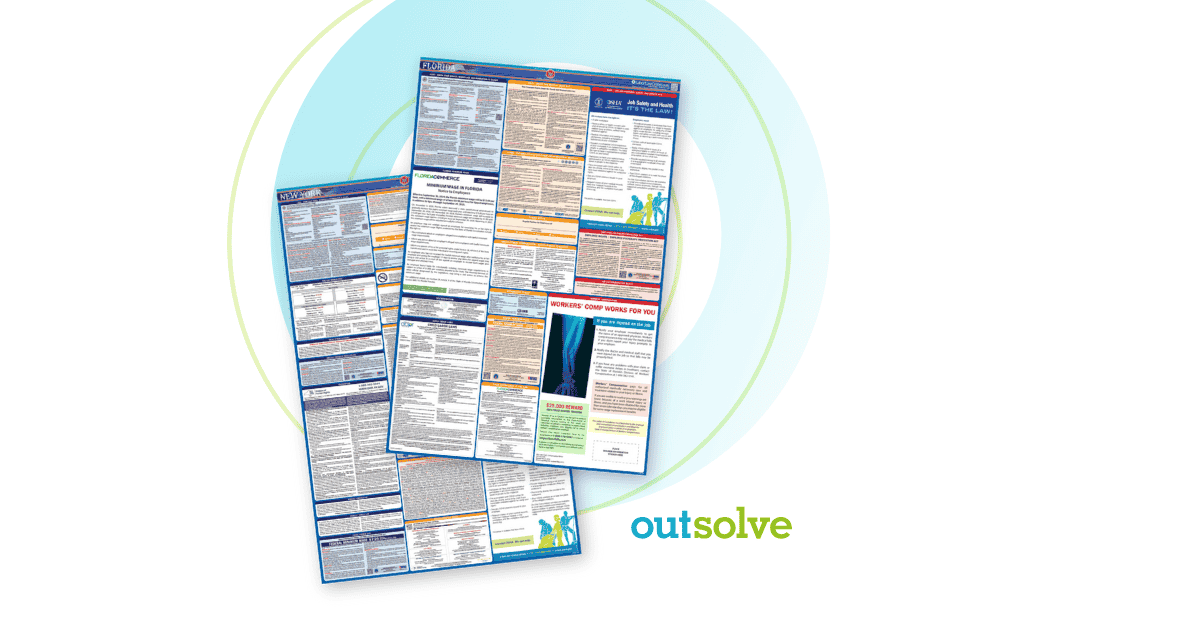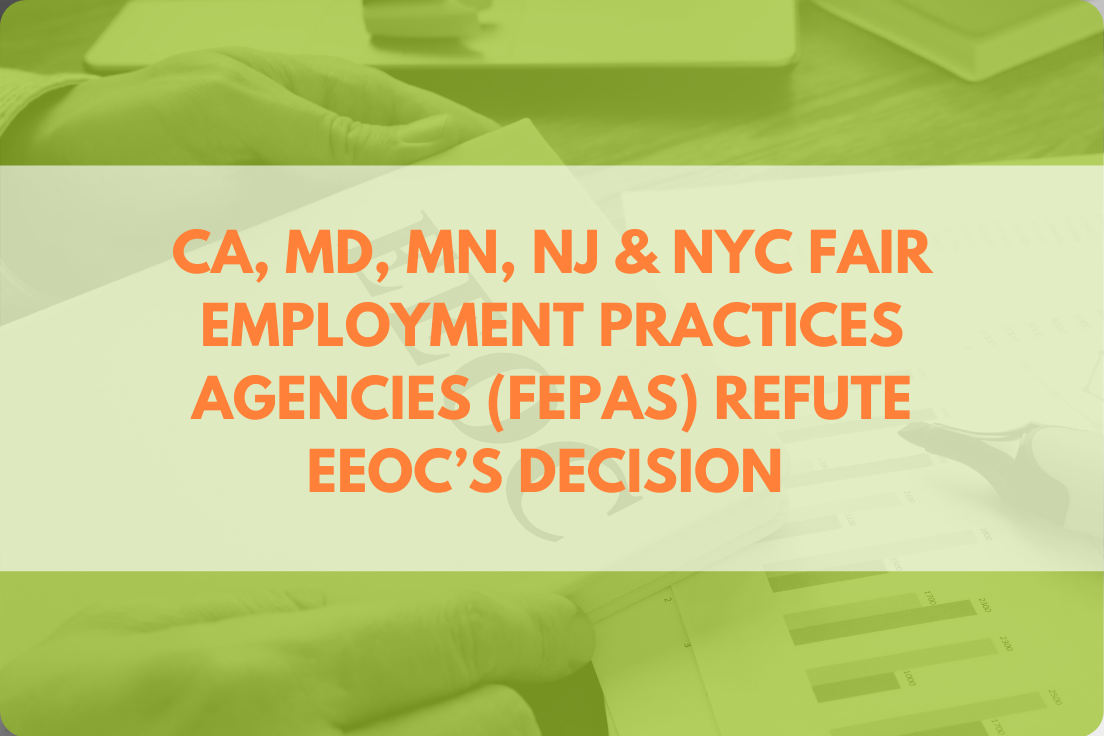FEPAs claim they need the Component 2 pay data going forward to undertake studies of equal pay issues
On April 22, 2020, the California Department of Fair Employment & Housing (DFEH) on behalf of the Maryland Commission on Civil Rights (MCCR), the Minnesota Department of Human Rights (MDHR), the New Jersey Division on Civil Rights (DCR) and the New York City Commission on Human Rights (NYCCHR) submitted a letter to the EEOC regarding their decision to stop collecting the EEO-1 Component 2 pay data.
The letter states that “under Title VII, the EEOC is required to consult and coordinate with interested state Fair Employment Practices Agencies (FEPAs) in prescribing the record-keeping and reporting requirements proposed in the Notice.” The FEPAs feel that since the EEOC failed to consult with them, the “EEOC’s notice and its data-sharing change should be rescinded in their entirety.”
In the letter each state provided their own rationale for their need for the EEO-1 Component 2 pay data. DFEH said that it uses the EEO-1 data to investigate complaints; understand trends in private sector workforce; and identify potential discrimination. MCCR said that the Component 2 pay data is a valuable resource in identifying issues of pay disparity and recommending best practices in their role as a designated member of the state’s Equal Pay Commission. The MDHR said that the “information EEOC collects would be instrumental to further the work of the agency and address these disparities.” The DCR said that it would benefit from EEO-1 Component 2 wage data “for purposes of investigating pay disparity composing reports on the wage gap consistent with its obligation to ‘issue such publications…and resources tending to promote good will and to minimize or eliminate discrimination.”
Another argument presented is that the EEOC has ended a longstanding practice of data sharing which “prevents state and local civil rights enforcement agencies from doing the same.” This ultimately impacts the ability of the local legal staff to identify widespread issues and potential discrimination trends within their jurisdictions. The letter concludes that the EEOC’s Notice “signals a change in the Commission’s practice which would undermine the ability of the state and local agencies to enforce civil rights and run afoul of the Commission’s strategic plan to target systemic discrimination.”
We will have to wait how EEOC reacts to these comments or if changes will be made if a Democrat with the election in November.
Founded in 1998, OutSolve has evolved into a premier compliance-driven HR advisory firm, leveraging deep expertise to simplify complex regulatory landscapes for businesses of all sizes. With a comprehensive suite of solutions encompassing HR compliance, workforce analytics, and risk mitigation consulting, OutSolve empowers organizations to navigate the intricate world of employment regulations with confidence.
Recent Posts
Related Posts

Former DOL Officials Issue Open Letter to Federal Contractors
On April 15, 2025, ten former senior officials from the U.S. Department of Labor (DOL), including past leaders of the Office of Federal Contract...

The Ultimate Guide to Multi-State Labor Law Posters
Human Resources professionals understand how important and challenging it can be to remain updated and compliant with labor laws. This is especially...

Countdown: Final Days of the 90-Day Safe Harbor Period for AAPs
April is here and with that comes the end of the 90-day safe harbor period for federal contractors complying with EO 11246. As April 21, 2025,...



